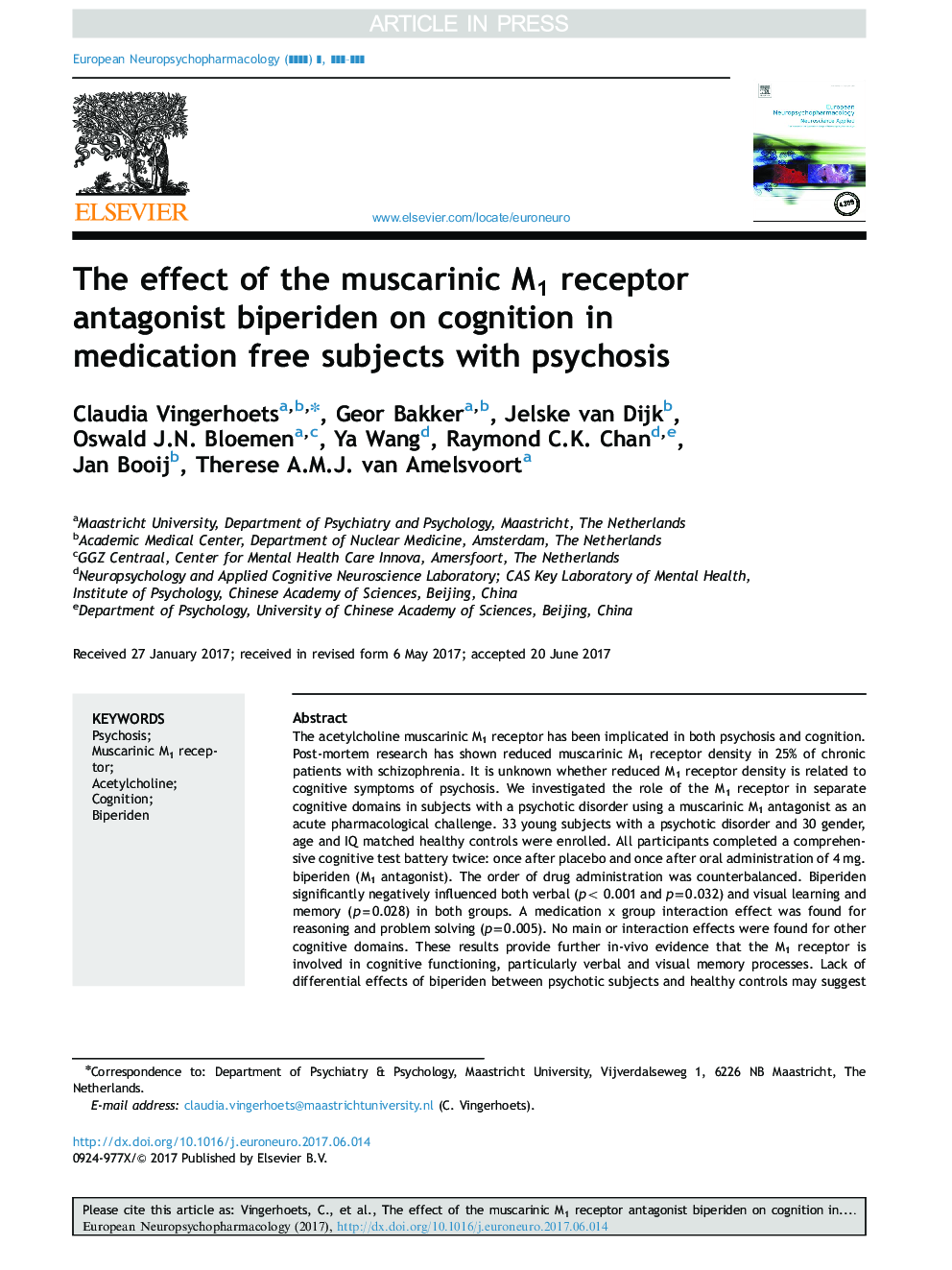| Article ID | Journal | Published Year | Pages | File Type |
|---|---|---|---|---|
| 4930303 | European Neuropsychopharmacology | 2017 | 11 Pages |
Abstract
The acetylcholine muscarinic M1 receptor has been implicated in both psychosis and cognition. Post-mortem research has shown reduced muscarinic M1 receptor density in 25% of chronic patients with schizophrenia. It is unknown whether reduced M1 receptor density is related to cognitive symptoms of psychosis. We investigated the role of the M1 receptor in separate cognitive domains in subjects with a psychotic disorder using a muscarinic M1 antagonist as an acute pharmacological challenge. 33 young subjects with a psychotic disorder and 30 gender, age and IQ matched healthy controls were enrolled. All participants completed a comprehensive cognitive test battery twice: once after placebo and once after oral administration of 4Â mg. biperiden (M1 antagonist). The order of drug administration was counterbalanced. Biperiden significantly negatively influenced both verbal (p< 0.001 and p=0.032) and visual learning and memory (p=0.028) in both groups. A medication x group interaction effect was found for reasoning and problem solving (p=0.005). No main or interaction effects were found for other cognitive domains. These results provide further in-vivo evidence that the M1 receptor is involved in cognitive functioning, particularly verbal and visual memory processes. Lack of differential effects of biperiden between psychotic subjects and healthy controls may suggest that decreased M1 receptor density is only present in chronic, older schizophrenia patients. However, it remains possible that differential effects of biperiden would be present in more severe cognitive impaired subjects with psychosis after several doses of biperiden instead of a single administration.
Related Topics
Life Sciences
Neuroscience
Biological Psychiatry
Authors
Claudia Vingerhoets, Geor Bakker, Jelske van Dijk, Oswald J.N. Bloemen, Ya Wang, Raymond C.K. Chan, Jan Booij, Therese A.M.J. van Amelsvoort,
